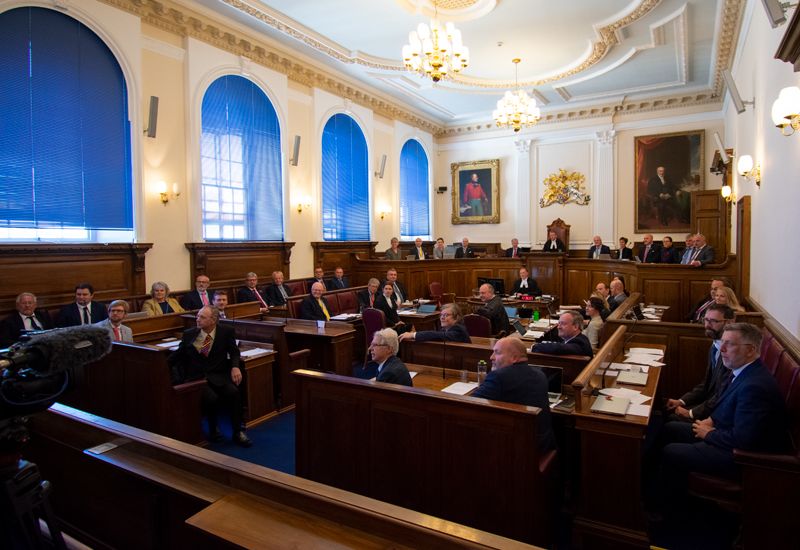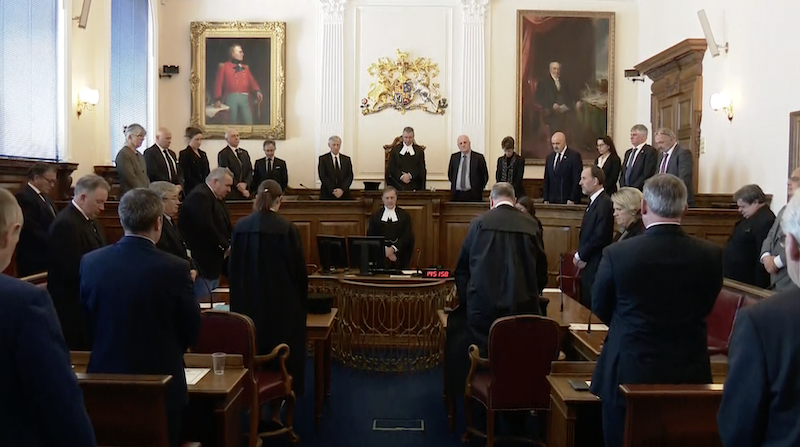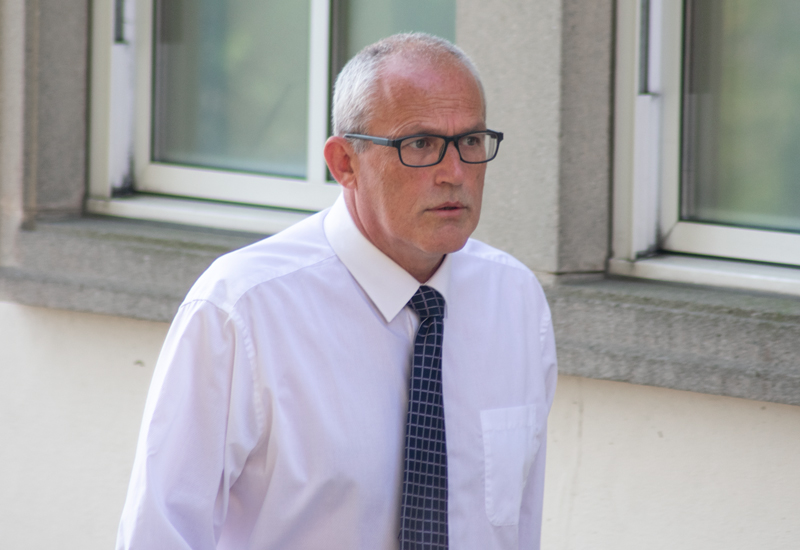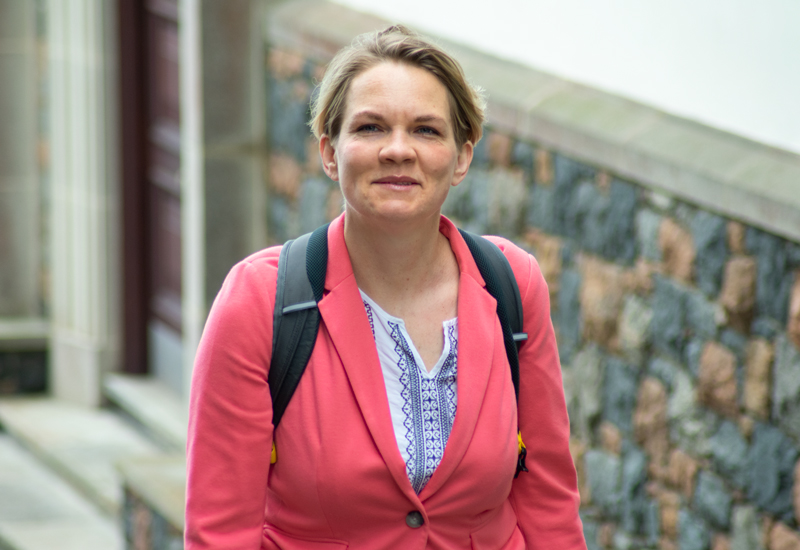


With a major States debate looming, Express took the opportunity to ask our elected politicians how much time they put aside to reading and responding to concerns and questions from the public.
There’s perhaps no profession more intrinsically linked to the public than the role of a politician. They stand in our place to choose the future of our island and make important decisions on our behalf; their job is to listen to the concerns of the community and mould legislation based on our best interests.
We’re approaching two major debates that will determine the future of the island. Starting on Wednesday 14 July, the Assembly will congregate to tackle, among many other topics, the future of secondary education and Abortion Law reforms.
A week later, the States will meet again for the last time before its summer recess to decide on the Government Work Plan, which will set the States' policy agenda for the next four years.
All our elected officials have government designated email addresses that are publicly available and can be contacted individually or through an ‘all-Deputies’ email.
We did the latter, asking all 38 members of the Assembly how much time they spend on replying to the public, how important this part of their job is, and whether or not they read everything they get sent.

Pictured: With a day to respond, 25 out of 38 Guernsey Deputies replied to Express's message by email or by phone.
The 25 who responded said that public conversation was an essential part of the job, with Deputy Steve Falla first off the mark. “It’s a really important part of our role to listen to the public, as they put us here,” he said.
“This is an extremely important aspect of my commitment as a Deputy,” agreed Deputy David De Lisle, who said he spends on average one full day a week on public requests.
Deputy Victoria Oliver said that public servants "who don’t read their emails from the public shouldn’t be in their job. If they’ve left a number, I will always try and call them. You can get a better understanding with someone over the phone.”
Deputy Oliver said the sheer quantity of correspondence can be overwhelming, citing 400 emails in her inbox prior to the last debate on education.
First-time Deputy Aidan Matthews is starting to see that demand: "At some peak times I’ve been up till 3am writing replies to emails!" he responded.

Pictured: Deputy Peter Roffey said he spends a very large amount of time “triaging” and then responding to emails. “Sadly I am not able to reply to all of them or I would have time for very little else.”
Replying to concerns and questions can take up a considerable amount of time, with Deputy Al Brouard saying it takes him approximately two hours a day to get through his inbox.
“[I have] responded to 99.9% of my emails over the years – normally within a few days and within 2/3 weeks if I have been off island or volumes are high. I have tried to maintain this over the last four terms of government,” he said.
“The volume of emails landing in my inbox each day varies,” said Deputy Lindsay de Sausmarez. "But it’s typically in the region of 50-80, and sometimes much higher if there’s a big debate coming up.”
It became clear that the ‘all-Deputies’ option won’t trigger a reply from everyone, simply because everyone sits on a different committee, with different mandates and areas of expertise.
“Responding to public enquiries is very important, but I can only respond with any real detail on areas for which I have responsibility,” said Deputy Mark Helyar.
On this subject, Deputy Falla added: “I’m grateful when people use ‘all-Deputies’ because I know the email has been seen and I can make a judgement call on whether to answer it."

Pictured: “I will reply to those for which the subject falls under any area for which I have responsibility,” said Deputy David Mahoney, who says he tackles his inbox after daily meetings.
Some ‘regulars’ and rude emails unsurprisingly get ignored, with Deputy Rob Prow suggesting it “comes with the territory”.
“It is very useful to receive comments and questions which help me to form a political view on those matters that are important to those who have taken the trouble to write,” he said.
“I also perfectly understand where people express frustration. However, a very few are rude and abusive, and I find that unhelpful.”
“I certainly read every one,” added Deputy Yvonne Burford. “The few that I don’t reply to would either be ones that slipped through the net when it gets very busy or the ones that are simply rude.”
Former Chief Minister Gavin St Pier said: “Not always [am I able to respond to all queries] either because of volume on a particular topic or time or because the correspondent is regular and their views are well known.”
Deputy Chris Blin said some people use a false name when emailing, which is unhelpful.
“My philosophy is that I respond to everyone. The exception being if people are looking for a tit-for-tat argument or using a fake name. Then I don’t respond.”

Pictured: “The very nature of being a Deputy is to be available and contactable,” said Deputy Adrian Gabriel.
Most of the Deputies said they intend to at least read every email, even if they can’t actually reply to every single one.
“I certainly read them all and respond to most,” said the President of Policy & Resources, Deputy Peter Febrache. “I would not be so brave as to say I have replied to everyone, but I can say I have replied to most.”
“I read all the correspondence that I receive,” echoed Deputy Nick Moakes. “I want to ensure that islanders do not lose their direct connection with Deputies following the move to island wide voting.”

Pictured: “My intention is to respond to all queries, even when only a short response is required,” said Deputy Sasha Kazantseva-Miller.
Another first-time politician, Deputy Tina Bury, said: “I’d hazard a rough guess that I manage around 85% [replies] however it is not always as timely as I’d like. I try to reply to as many emails as possible.”
Emails can range from States’ agendas to traffic problems, to people asking for help with a personal crisis.
“It’s one of the aspects of being a Deputy that can often make the biggest singular difference to people’s lives,” said Deputy de Sausmarez.
“There is a lot of job satisfaction knowing you have helped someone resolve a serious problem, and really these kinds of issues loom larger in individuals’ lives than many of the policy decisions we make or legislation we approve.”
Deputy Lester Queripel, who takes on a lot of case work with members of the public, said this is an "extremely important" aspect of the role.

Pictured: Deputy John Gollop said he likes to remain proactive with his involvement. "I think many members of the public would agree that I am one of the most visible members of the community and relate strongly to the younger and older generations."
Deputy Andrea Dudley-Owen went so far as to say that she prefers people to just pick up the phone.
"I spend a lot of time on the phone talking to parishioners. If you give them time on the phone it allows for a more fulsome response - I welcome anyone to pick up the phone and call me, we're part of the community."
Education, Sport & Culture colleague Sue Aldwell similarly said she does a lot of her work on the phone: "I normally pick the phone up and give them [the member of the public] a call and then contact the Deputy who’s mandate it refers to and call them back."
As a member of the Civil Contingencies Authority and now advisor, Deputy Heidi Soulsby said she has received a monumental number of emails over the past 18 months.
"It has been very important to me to try to respond to emails - and it has taken a considerable amount of my waking hours.
"Sometimes the sheer volume makes it difficult to do so in a reasonable timescale and sometimes it may not be necessary as others copied in are best placed to respond."

Pictured: "I do like to hear what people have to say and they are generally polite and deserving of a response - I don’t think I should respond on the Covid lockdown rules. The CCA Deputies have that in hand," said Deputy John Dyke.
Clearly the job of a Deputy includes a substantial amount of time spent going through public correspondence.
"One of the things I've discovered is that over the past four years I was getting roughly 180 emails a day," said Deputy Jonathan Le Tocq, who was told to reduce his screen time by his cardiologist after suffering a heart attack late last year.
"I have a number of categories I put them in, and I have to read them all to decide which is which." These categories are based around the level of urgency and when they need to be responded to.
Deputy Burford concluded by saying that public accessibility is the bread and butter of being a People's Deputy.
"It is very important for many reasons: It helps me to keep my finger on the pulse of what is important to people across the community; it is an opportunity to directly help people or to signpost them to where they can find an answer if I can’t provide one.
"It is part of the job and it’s what I am being paid for!"
If you want to get your money's worth, you can find a list of contact details HERE.
Express received 25 responses, with Deputies Simon Fairclough, Sam Haskins, Neil Inder, Chris Le Tissier, Liam McKenna, Carl Meerveld, Bob Murray, Charles Parkinson, Andrew Taylor, Lyndon Trott and Simon Vermeulen unable or unwilling to respond within the timeframe set.
Comments
Comments on this story express the views of the commentator only, not Bailiwick Publishing. We are unable to guarantee the accuracy of any of those comments.